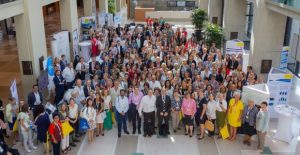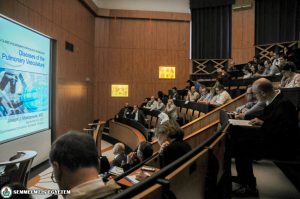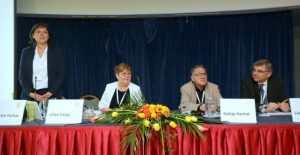The third international postgraduate workshop of the Section of Urolithiasis (EULIS) of the European Association of Urology (EAU) was held in Budapest organized by Semmelweis University’s Department of Urology and the Hungarian Society of Urology.
The two-day event was opened by Dr. Péter Nyirády, director of the Department of Urology, who emphasized the fact that it has been the third time to have the most acknowledged European urologists together to review the current challenges and trends in the field of urology. After the workshops in Vienna and in Milan, the top ninety European specialists of urinary tract stones were invited from twelve different countries to the meeting in Budapest.
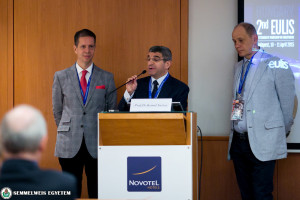 Dr. Kemal Sarica, Chairman of the EAU Section of Urolithiasis said that the Section considered discussions about the current status of urolithiasis, and the latest medical, surgical and research developments of outmost importance.
Dr. Kemal Sarica, Chairman of the EAU Section of Urolithiasis said that the Section considered discussions about the current status of urolithiasis, and the latest medical, surgical and research developments of outmost importance.
Dr. Péter Tenke, Chairman of the Hungarian Society of Urology said that it was a great pleasure to have such an important international workshop organized in Hungary for the first time, as it provided the participants with ample discussions on scientific and practical matters. The conference was free of charge for registrars and specialists under the age of 40 could enrol with a 50% reduction from the price.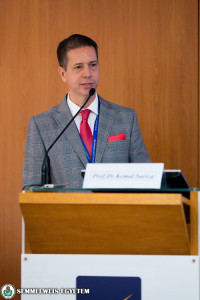
Dr. Attila Szendrői, programme co-ordinator of the scientific committee said that the focal points of the workshop were the treatment and prevention of the development of urinary tract stones and the examination of patients. Besides the presence of urological specialists, those of the related disciplines – such as internal medicine, anaesthesiology, radiology, etc. – were also involved in the
workshop as the successful treatment of patients depend on their close co-operation.
Urolithiatic surgery is the oldest branch of urology, which has undergone considerable changes since the appearance of minimally invasive technologies and the development of imaging examinations, therefore it has become the most dynamically developing area of urology. Treatments involving laser and endoscopic technologies enable specialists to remove stones without exerting too much strain on the patient.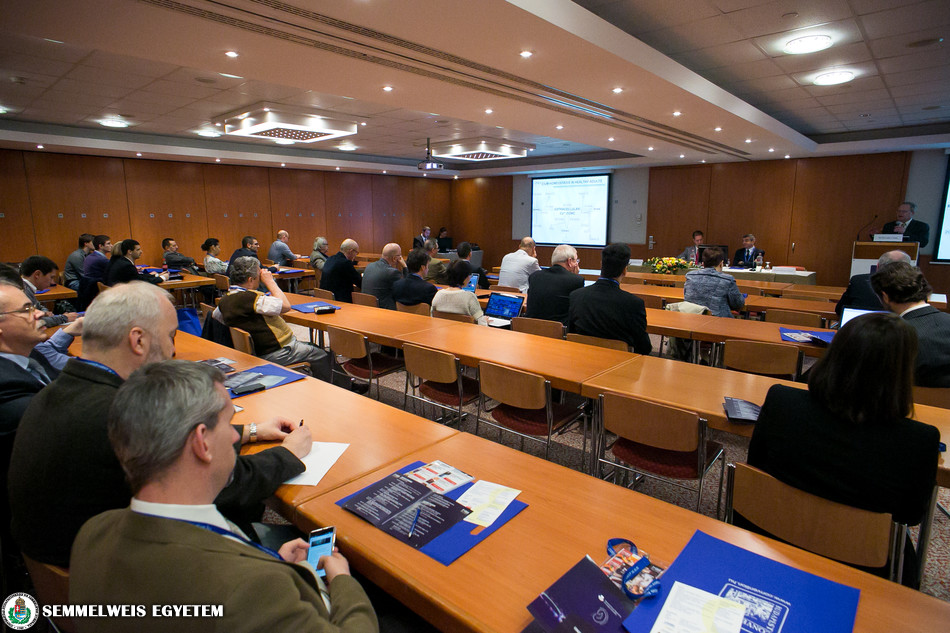
After the event, director Dr. Péter Nyirády mentioned that the Department of Urology and the Section of Urolithiasis of the European Association of Urology are expected to continue to work closely together in the treatment of patients and scientific research. On the long, run they would like to realize the project of annually organizing the congress of the Department of Urology and the Section of Urolithiasis of the European Association of Urology.
Pálma Dobozi
Attila Kovács, Semmelweis University
Translated by: Ágnes Raubinek
